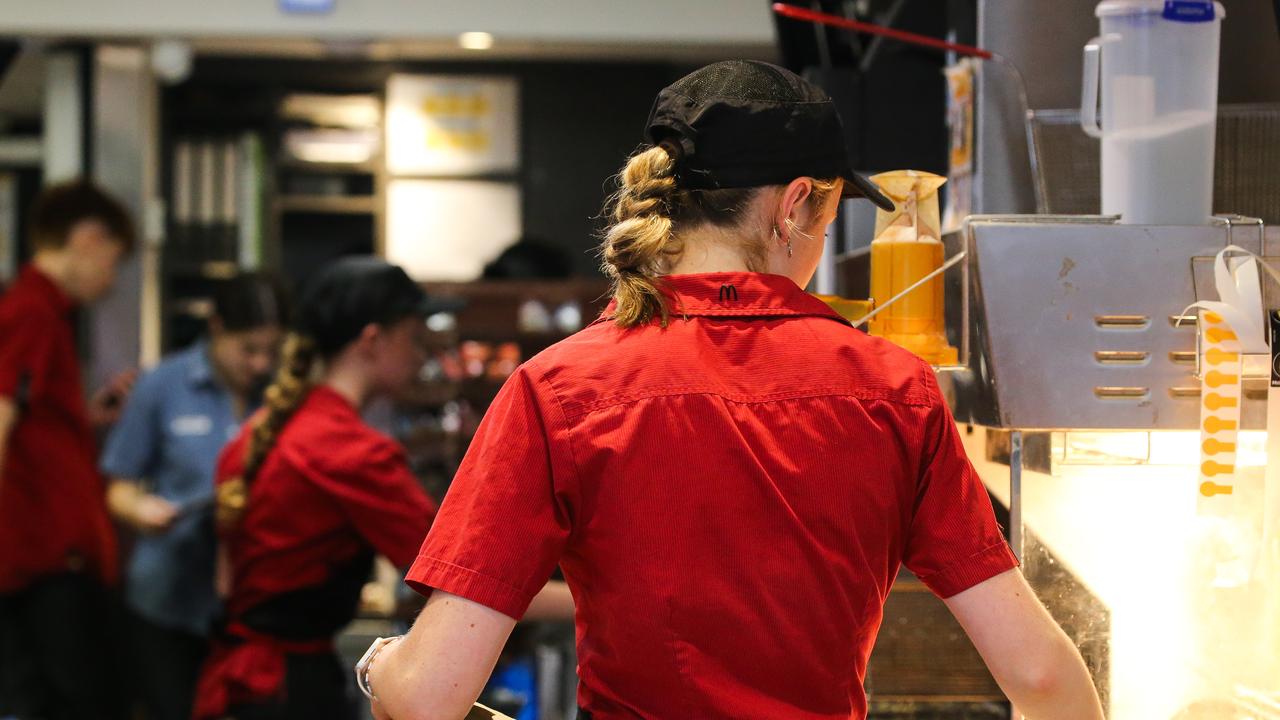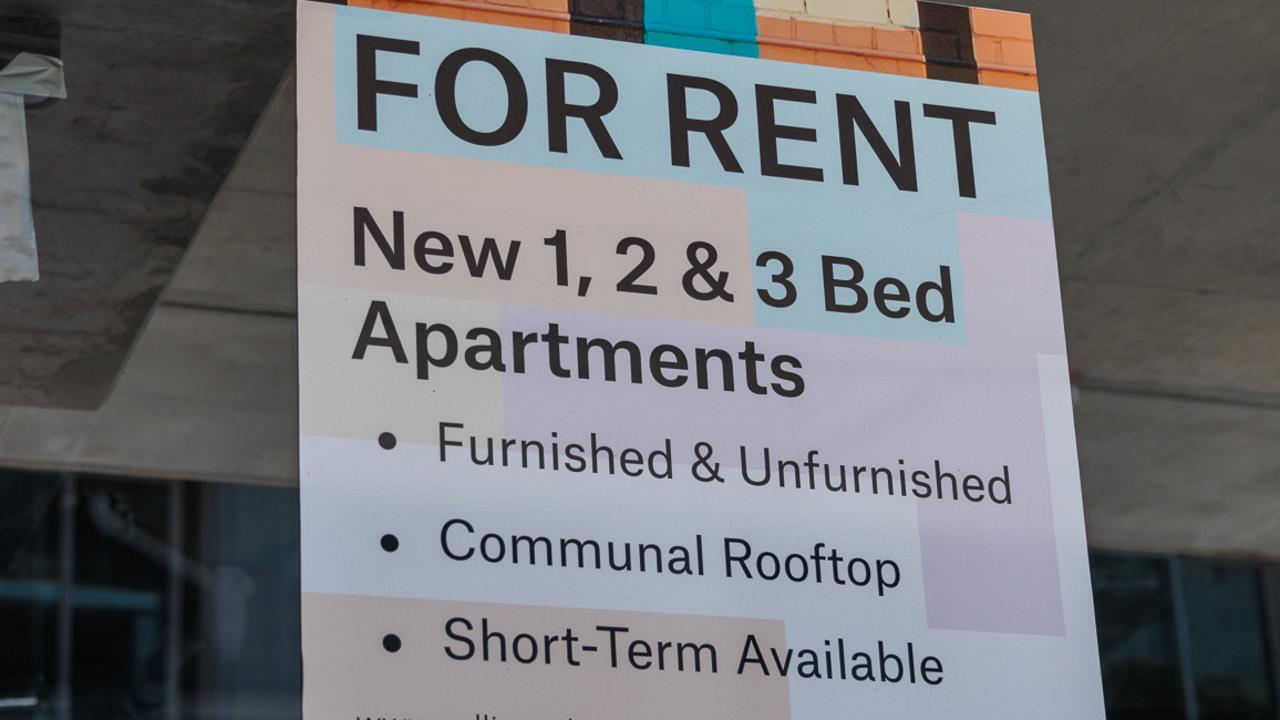Dodgy doorknockers now selling private college courses, solar panels
EXCLUSIVE: Dodgy door-to-door sellers may have been ejected from one industry but now they’re back and on the hunt for new victims.

Careers
Don't miss out on the headlines from Careers. Followed categories will be added to My News.
EXCLUSIVE: Just when you thought it was safe to answer your door again, they’re back.
Since 2012, more than 290 door-to-door sellers have been deregistered and slapped with five-year bans for poor behaviour, according to energy industry self-regulatory body Energy Assured.
But now they’ve jumped from spruiking energy contracts to selling expensive private college courses, an industry body has warned.
Many of those agents are now selling for registered training organisations (RTO) and solar panel installers, according to Energy Assured chief executive officer Anne Whitehouse.
The recent deregulation of the government higher education loan system has opened up a rapidly expanding industry of private colleges.
MORE: PRIVATE COLLEGES FACING SENATE INQUIRY
EARLIER: POWER COMPANIES BAN DODGY SELLERS
Ms Whitehouse estimates there are between 5000-6000 face-to-face sales agents operating in Australia, many of whom engage in high-pressure sales tactics.
She said there were about 15 large organisations in the RTO sector and a rapidly growing number of smaller players were engaging in door-to-door selling.
“The large marketing companies like Salmat know what they can’t do,” she said. “The problem is some of the small marketing companies. Often they’re run by ex-agents who set them up to target this sector.”
Rod Camm, the chief executive of industry body Australian Council for Private Education and Training said: “We have heard of inappropriate recruitment practices of that ilk. We have standards of our own that our members follow and while those inappropriate practices happen on the margins of the industry, it’s something we need to keep an eye out.
“Just recently, we called for the formation of an industry ombudsman like that of the energy sector.”
Mr Camm said an ombudsman will ensure students are being looked after. He said ACPET members make up about 30 per cent of the industry and the organisation is the largest peak body in the private RTO sector.
Ms Whitehouse has launched a new industry organisation, Sales Assured, which will open up membership to all companies that engage in door-to-door or kiosk sales.
Under the system, any agent found to be in breach of the code of conduct will be deregistered and barred from working for any other member organisations.
Ms Whitehouse said the energy industry has seen a reduction in ombudsman complaints since Energy Assured formed two years ago, but other sectors with less experience engaging face-to-face marketers weren’t aware of the pitfalls.
“The energy companies themselves don’t try to do the wrong thing, nor do the RTOs,” she said. “They have a brand and want to protect that reputation. Where we’ve seen the problems occur is individual agent behaviour.”
She said the most common issues resulting in bans were giving misleading information — either about the product itself or by claiming the customer had to sign up or something would happen — refusing to leave when asked, and ignoring do-not-knock stickers.
The new organisation will engage with RTOs, telcos, charities, pay TV providers and solar providers in a bid to set and maintain high standards and rid industries of poor-performing sales agents.
A report by the Australian Competition and Consumer Commission in 2012 found dodgy doorknockers were using “hit lists” to prey on vulnerable targets including the elderly and residents in housing commission areas.
The ACCC has cracked down on doorknocking in recent years — last year AGL was ordered to pay $1.5 million for illegal door-to-door selling practices.
Gerard Brody, CEO of the Consumer Action Law Centre, says he is not a strong supporter of the Energy Assured code of conduct, which the Sales Assured code will closely mirror.
He says it was developed without consultation with consumers and didn’t add anything substantial to the existing regulations under Australian Consumer Law.
“At the heart of door-to-door sales is a conflicted remuneration model,” he said. “It’s a commission model which drives people to sign up customers, and that breeds poor conduct.”
Mr Brody said despite the best efforts of Energy Assured in imposing standards and requiring sales agents to be registered, it didn’t tackle the fundamental issue.
“What we’ve seen in the energy industry played that out — the ACCC came down hard on energy companies and the big three subsequently pulled out of door-to-door selling altogether.”
The registered training organisation sector has been plagued with scandals in recent months, including allegations of poor-quality courses, aggressive sales tactics and the targeting of disadvantaged or vulnerable people.
Consumer advocates have raised concerns that many students are being inappropriately signed up for expensive private college courses and saddled with debt, without having the workings of government loans fully explained to them.
In addition to extensive telemarketing, many RTOs or third-party marketing organisations now have kiosks in shopping centres and other high-traffic areas.
Originally published as Dodgy doorknockers now selling private college courses, solar panels



